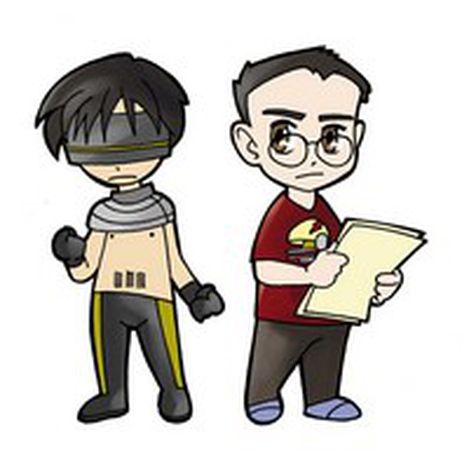
When manga becomes European
Published on
Translation by:
Sarah GrayThere's a new breed of European-borns, brought up on bread and TV cartoons, who are taking on the famous Japanese comic-strip genre and making it their own
From Japan to Europe, and back again. Raised on a diet of cartoons (such as the legendary Candy Candy), in the eighties and manga (Japanese comic-books) from the nineties onwards, Europe´s thirty-somethings are now returning the favour to the Land of the Rising Sun. They are creating a genre of their very own, so new that it does not yet have a fixed name. It is known as Western manga, European manga or Euromanga.
The concept stays the same: the popular comic books, the ones you read back-to-front, are now being produced here in the Old Continent by young authors. Just without the oriental flavour. The phenomenon is only just getting started, but its certainly an interesting experiment. Is it possible to adopt a genre from a foreign culture, reinvent it to create a new concept, to the point of being able to export it successfully to its native land?
Just-Japanese-please
France currently enjoys the most interesting and experimental comic-book scene in Europe. Last September, French publisher ´Associated Humanoids´ ('Les Humano des Associos') launched Shogun Mag, a magazine dedicated entirely to the work of young Western artists presenting their own interpretations of the literary and graphic style of manga.
Amongst them are Andrea Iovinelli and Massimo Dall´Oglio, both 33, writers and animators of Underskin. It´s a science-fiction series that recently made an appearance in the pages of Shogun.
'This is all happening,' Iovenelli explains, ´because editors have realised that if they don´t want to lose the battle against Japanese manga (around 35% of comics sold in France today are imported from the Far East), then they have to attract readers to their ´native´ European comics from an early age. Otherwise they will lose an entire generation of readers.´
Creating ´home-made´ manga, as Iovinelli explains, means no longer being obliged to obtain publishing rights from foreign publishers, and not being totally reliant on Japan for the production of new comics. The economic demands are therefore more pressing than the artistic, and, as always, the United States are in the front line of developments. These comics are so widespread over there, Dall´Oglio tells us that Tokyo Pop, the USA´s largest manga publisher, is starting to offer American-made manga comics. ´It has great potential,´ Dall´Oglio believes. ´I have a lot of confidence in the evolution of the genre. It is nonsense to think that only the Japanese can produce manga. Europeans - or indeed any Westerners - can of course contribute to the genre´s development.´
UFO Robot Generation
In fact the differences are not so vast. The manga produced so far by French publishers stick closely to Japanese conventions. Andrea explains the differences; if we really look for them, ´they stem from the fact that the producers of these comics are European, each with their own culture, sensitivities and view of the world, born and raised in a society far removed from that of Japan.' Far removed, certainly, but linked nonetheless. Let us not forget that those designing manga today are members of the so-called ´UFO Robot Generation´, named after the famous Japanese cartoon series.
This is how Dall´Oglio describes himself, explaining that his method of storytelling is closely linked to Japanese culture: the pace of narration, the framing of shots, the directing, the settings. ´But on the other hand,´ he goes on, ´I am very attached to my own Western culture and cannot help but aim for a fusion of the two worlds.´
So even manga is becoming global. Andrea agrees that: ´today more than ever, in a world which has suddenly become very small, defining clear limits and establishing for certain whether a comic is or is not part of the manga genre is truly difficult.´ On the other hand, it´s obvious that the influx of manga into Europe continues to be more than plentiful. But if this is the case, we may ask, is there really any need to start producing new comics? ´It´s not that there is a specific need,´ Dall´Oglio explains, ´but simply that the genre is so popular because it is fresh, immediate, exciting and above all because it is free from the clichés of Western comics.´ The risk, however, is that breaking free from European conventions will mean getting locked into a new pair of handcuffs - furry pink ones. Made in Japan, naturally.
Translated from Euromanga, quando il manga è europeo



